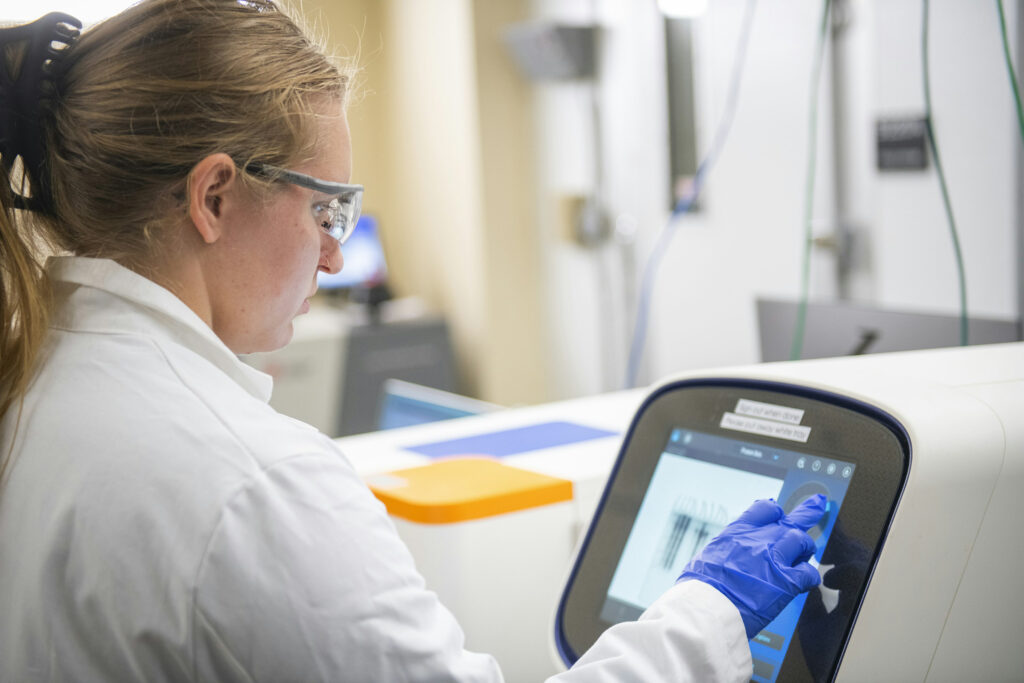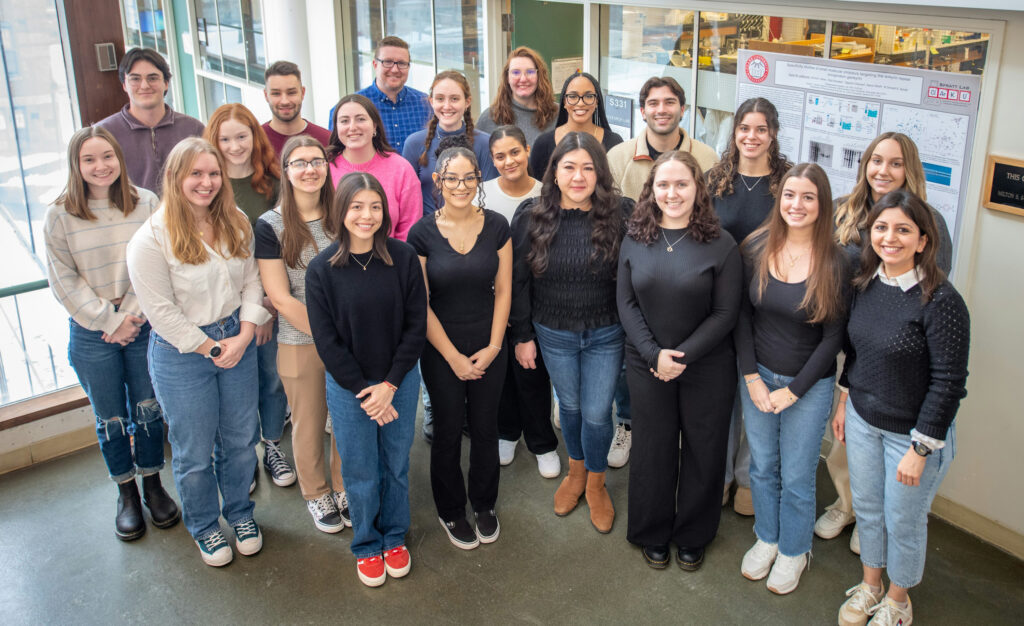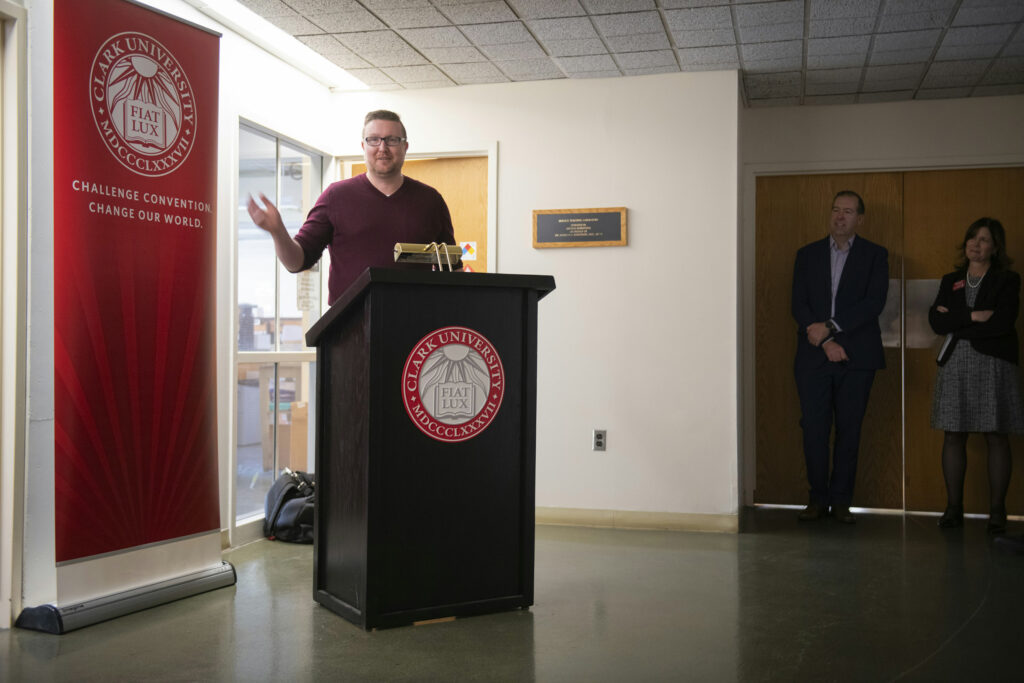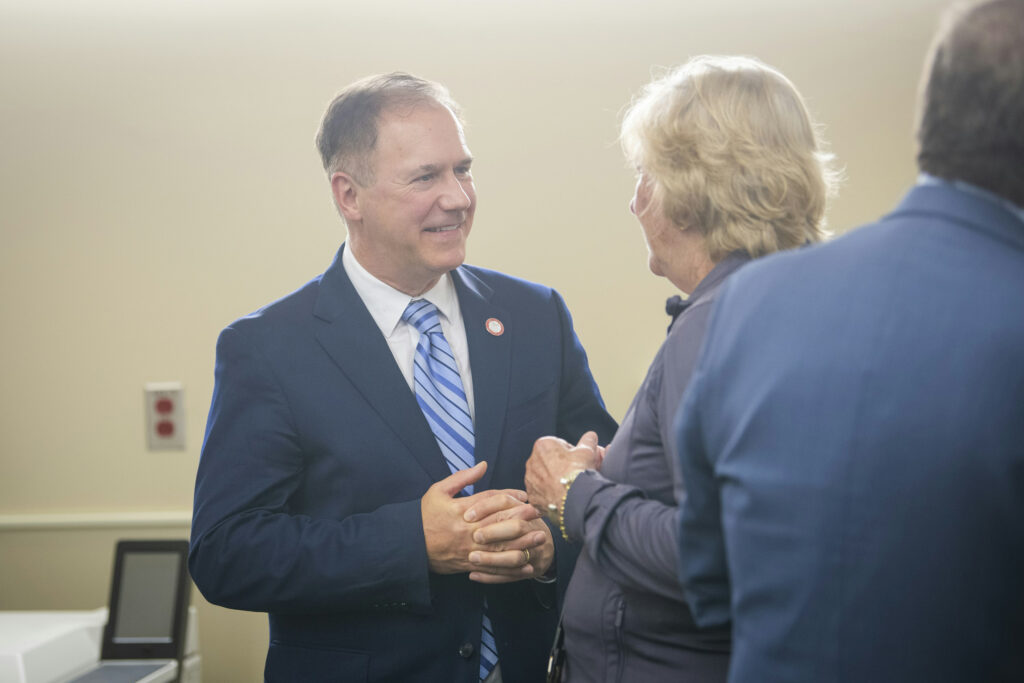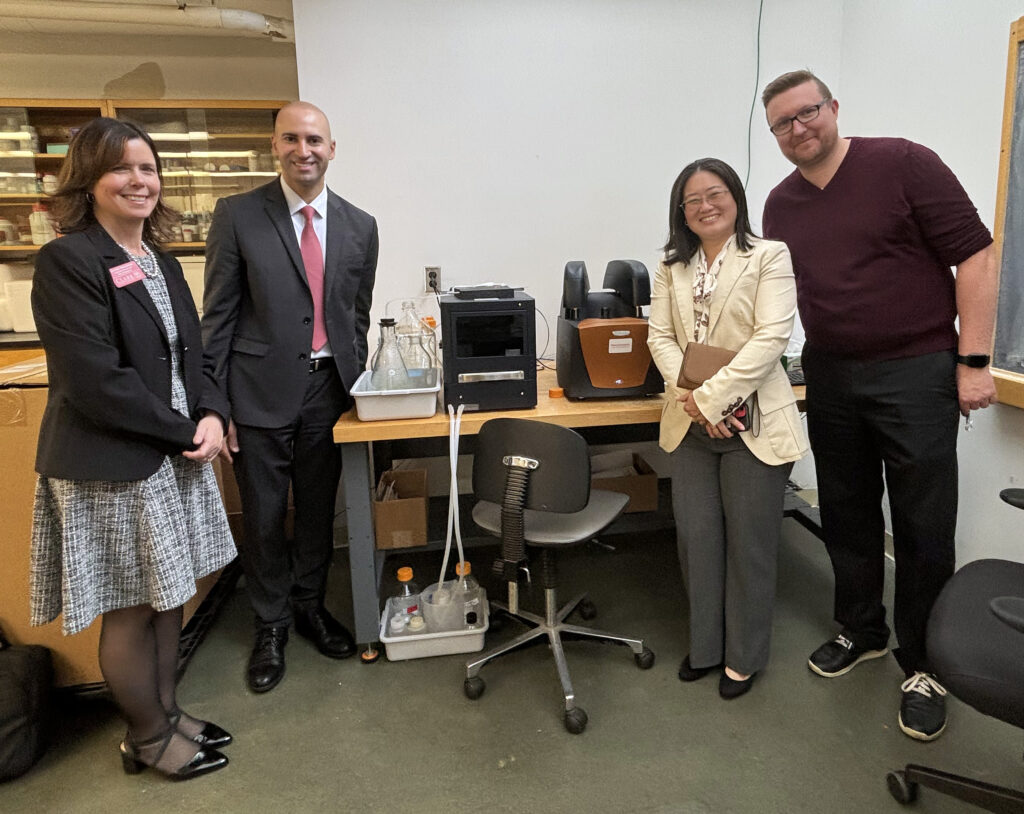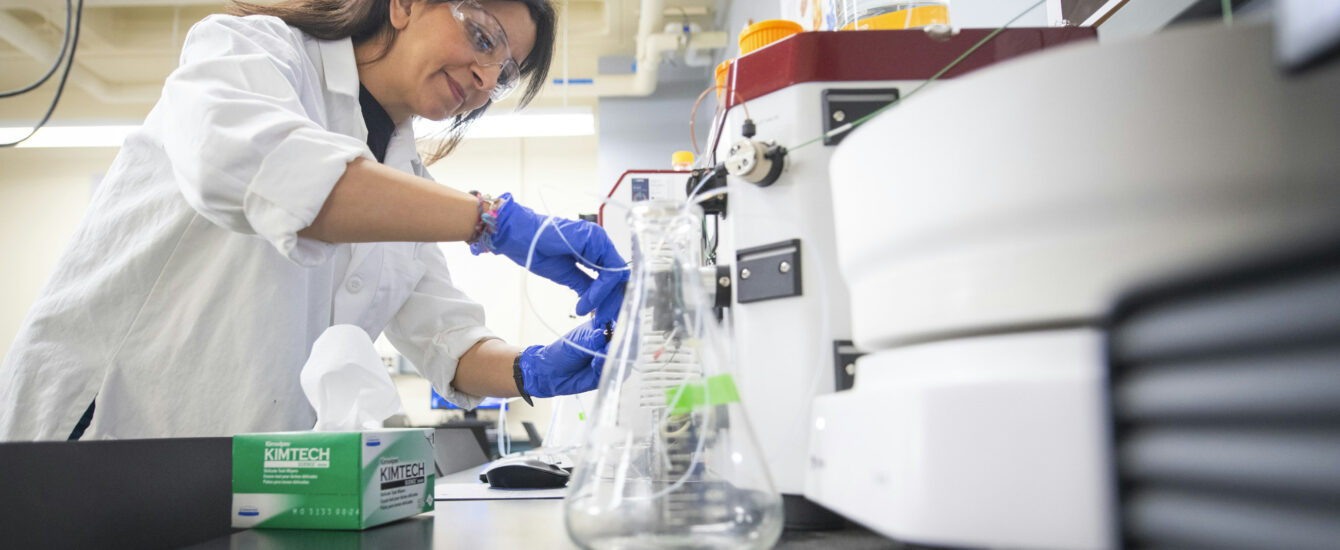
‘I couldn’t do this research without the new lab’
Clark’s Gustaf H. Carlson School of Chemistry and Biochemistry celebrated the launch on Oct. 30 of a new research laboratory filled with equipment that will greatly expand the capacity of students to prepare for jobs in Massachusetts’ ever-growing, multi-billion-dollar biotechnology industry.
Professor Donald Spratt was awarded a $750,000 Workforce Development Capital Grant from the Massachusetts Life Sciences Center to transform the lab, introducing industry-standard equipment to conduct National Institutes of Health-funded research that, he notes, seeks to understand “the molecular basis of human diseases using state-of-the-art techniques to observe and characterize protein-protein interactions in the cell and at the atomic level.”
Spratt’s team of nearly a dozen undergraduate and graduate student researchers are already putting the equipment to use, purifying and isolating proteins and studying enzymes responsible for cancers and other diseases, neurodegenerative and immune disorders, and congenital defects.
“I couldn’t do this research without the new lab — it’s only possible because of the new equipment,” said William Luschen-Miskovsky ’25, a major in biochemistry and molecular biology (BCMB) who presented his poster, “Optimization of a FRET based kinetic assay to measure E2-E3 transthiolation,” at this week’s ClarkFEST, the University’s twice-annual undergraduate research event. His study was funded by the Maurine H. Milburn Summer Research Fellowship.
Using the newly acquired equipment, Fadwa Mekkaoui, a fourth-year BCMB doctoral student, can “actually look at mutations of my protein binding to the DNA — this equipment allows me to look at that interaction happening.”
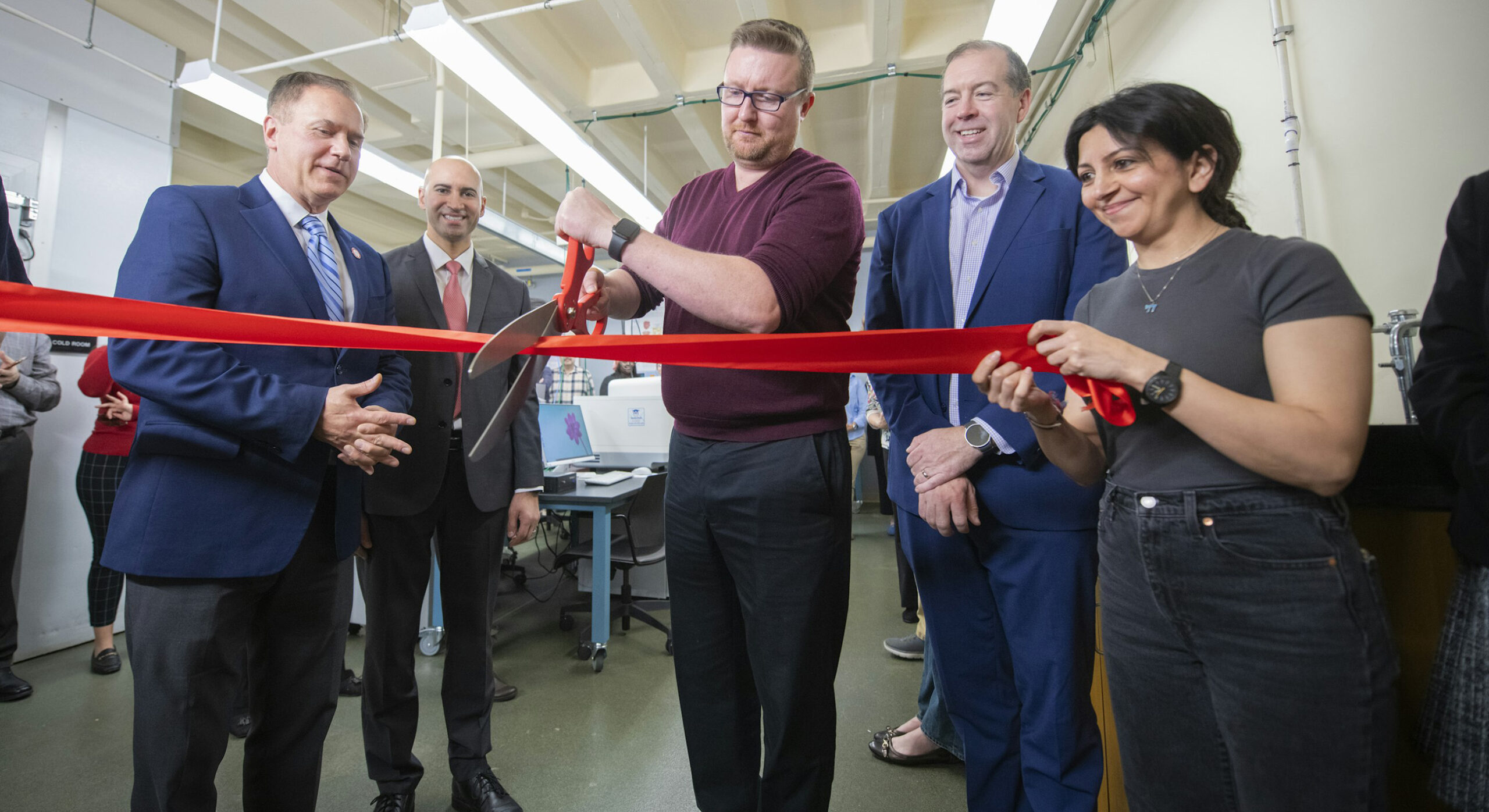
When Emily Schaffter, a third-year Ph.D. student in BCMB, used to purify proteins in the Spratt Lab, it took her two days, sharing one or two ӒKTA pure chromatography systems among 10 or 20 researchers. Thanks to the grant, there are now five ӒKTA systems. “I can now do it in one day,” she said.
The new lab also “makes everything a lot more streamlined when you go from the academic lab setting to industry, because these are the instruments people use in industry,” added Schaffter, who intends to pursue a career in the biotech industry after obtaining a Ph.D. “By knowing how to use the instruments, I can apply that knowledge to anything that I do.”
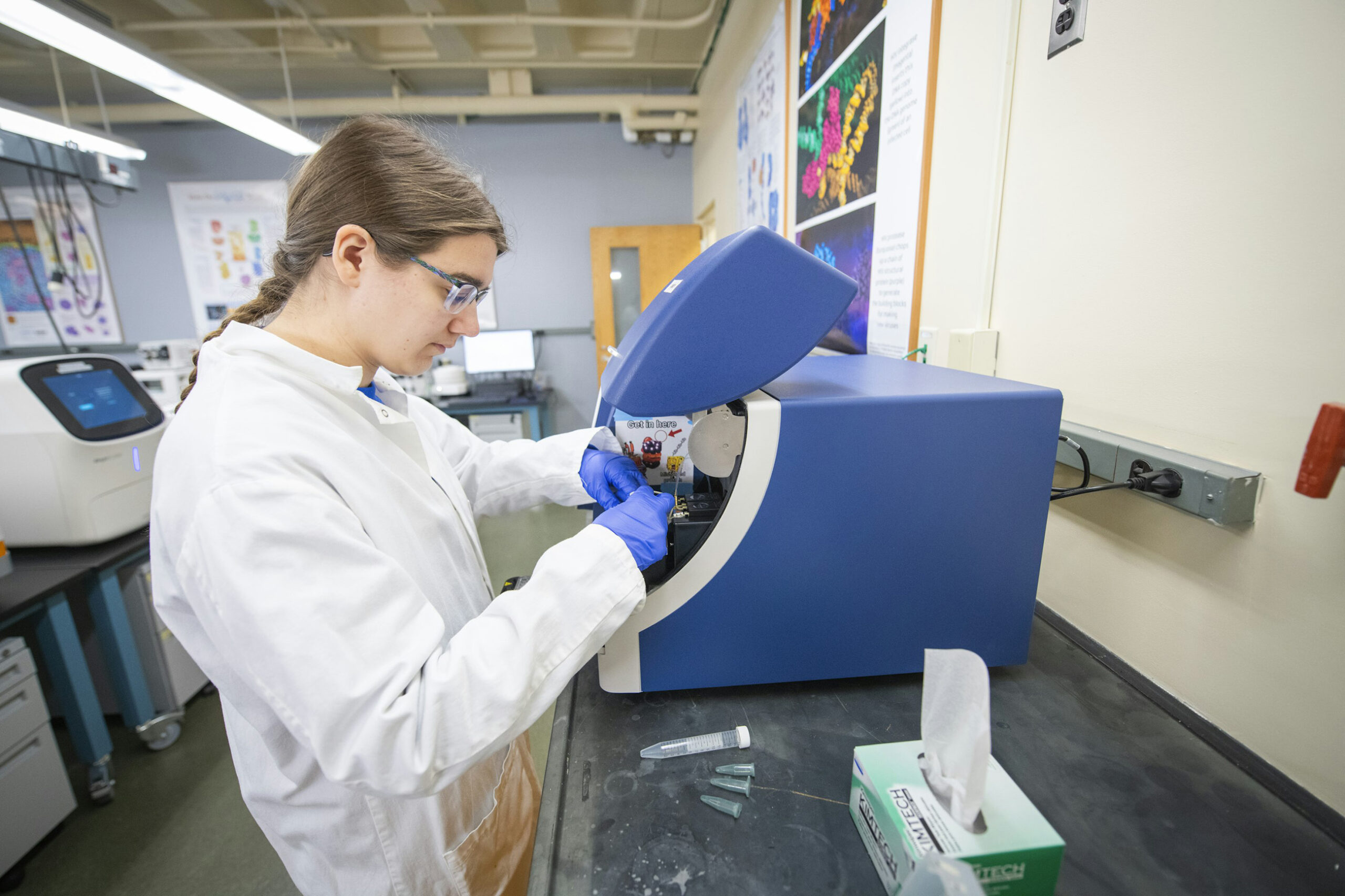
At Wednesday’s ribbon-cutting ceremony, President David Fithian thanked Ryan Mudawar, vice president of education and workforce programs, and his colleagues at Mass Life Sciences Center for the gift.
“The protein research being done by Professor Don Spratt and his students inside this lab aspires to improve health outcomes and extend lives. It is important and impactful work,” Fithian said. “We are incredibly grateful that the Mass Life Sciences Center has recognized the consequential nature of this research and has chosen to play a critical role in empowering it to continue at an even more elevated level with state-of-the-art equipment funded through their grant.”
Also attending were Linda Lee, manager of education and workforce programs at Mass Life Sciences; State Rep. Mary Keefe; and representatives from State Sen. Michael Moore’s office, Massachusetts Biomedical Initiatives (MBI), WuXi Biologics, the Better Business Bureau, Worcester Business Development Corporation, the Association of Independent Colleges and Universities in Massachusetts, MassBioEd Foundation, and the Worcester Public Schools, along with Clark faculty, staff, and students.
Massachusetts is the global leader for life sciences research and industry, according to Mudawar. Although many jobs can be found in the Boston-Cambridge corridor, Worcester is now home to an ever-increasing number of companies and incubators like WuXi, MBI, AbbVie, LakePharma, Biomere, Fornax, and Yurogen Biosystems.
Since its founding nearly 15 years ago, Mass Life Sciences Center has led initiatives to grow and support the Commonwealth’s “life sciences ecosystem,” according to Mudawar.
Clark’s grant “comes at a very critical time,” he said. “We and our partners at the MassBioEd Foundation are projecting 38,000 net new jobs over the next 10 years, and we need all the support we can get from our academic partners and training organizations to make sure we have the workforce pipeline needed to fill the jobs we’re creating.
“We’ve invested significantly in Worcester and Central Massachusetts,” Mudawar added, “and the next step for us is helping Clark have the technical capabilities to train students for the jobs in the future in this industry.”
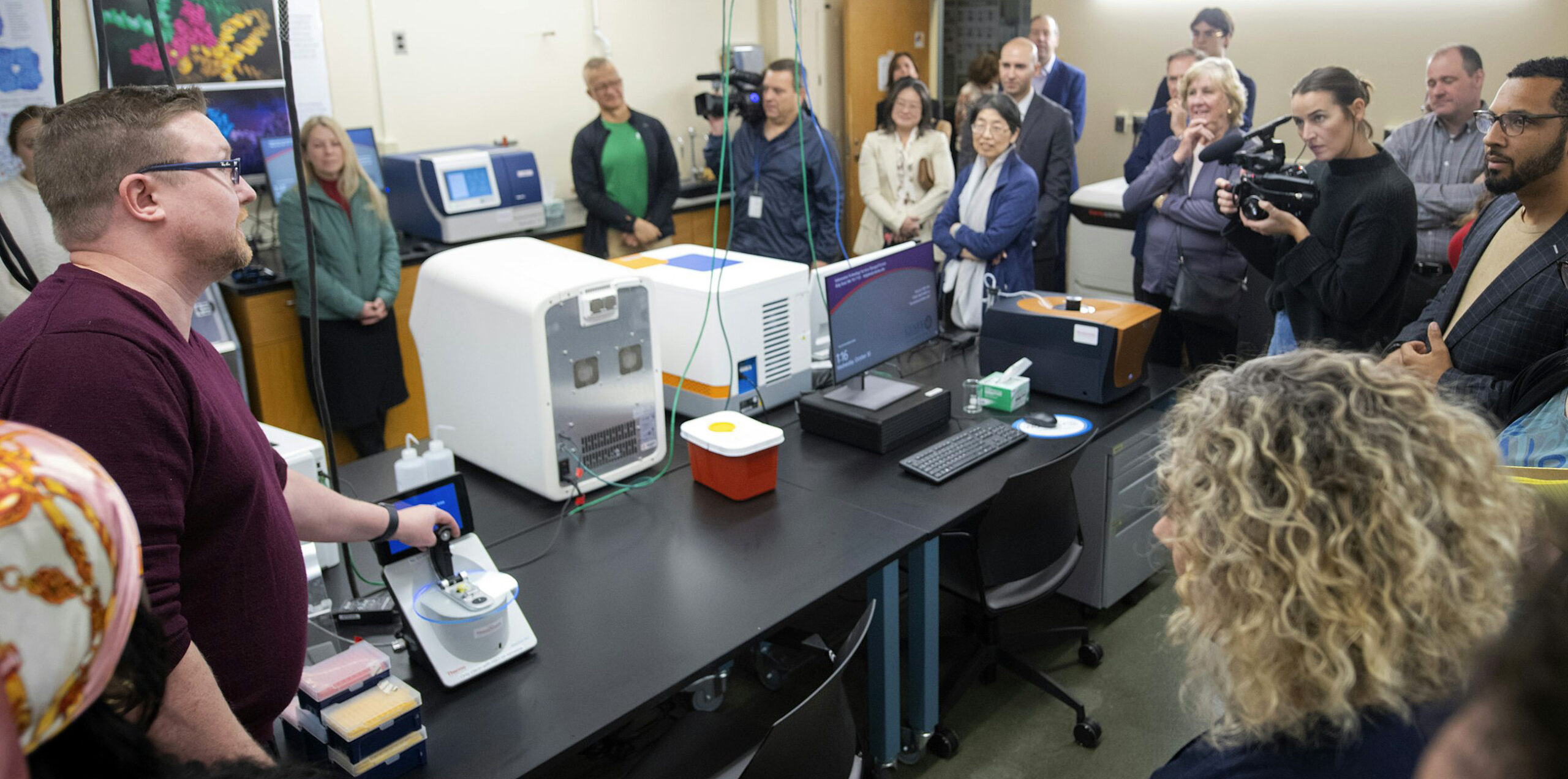
Fithian reiterated that “the power of this lab is more than just the important science being done here. Through communication training and career planning seminars, Professor Spratt coaches his students on how to make their professional mark.”
Spratt’s undergraduate students — most of whom also pursued an M.S. in biochemistry and molecular biology through Clark’s 4+1 Accelerated Master’s Degree program — have landed jobs in Massachusetts at AbbVie, UMass Chan Medical School, Moderna Therapeutics, Ultragenyx, Pfizer, Amgen, Dana-Farber Cancer Institute, Affinivax, Novartis, and many more notable companies and research institutions.
“This grant money has been truly transformative for our research team,” Spratt said, giving “students more hands-on learning opportunities and helping support the biotechnology pipelines we’re developing here at Clark. We’re producing really good data and publishing papers in high-impact journals.”
High school students also will benefit from the new lab. Since 2015, when Spratt launched Clark’s STEM Outreach Program, he has invited hundreds of students from local high schools to the University for tours, workshops, and research experiences. His efforts recently led New England Biolabs, a life sciences company based in Ipswich, Massachusetts, to present him with its annual Passion in Science Award.
Mass Life Sciences Center has provided funding to Clark since 2009, according to Mudawar, supporting 24 Clark students in biotech internships throughout Massachusetts and 10 high school students to conduct research in the University’s science labs. The agency also has partnered with BioBuilder Educational Foundation to host pre-internship lab training for local high school students in Clark’s Sciences Center.
“We are fortunate to be at the center of a thriving — and hiring — biotech community,” Fithian said, “and Professor Spratt is training and inspiring the next generation of scientists.”
Photo at top of story: Ph.D. student Maryam Riyazi works with the new equipment.

